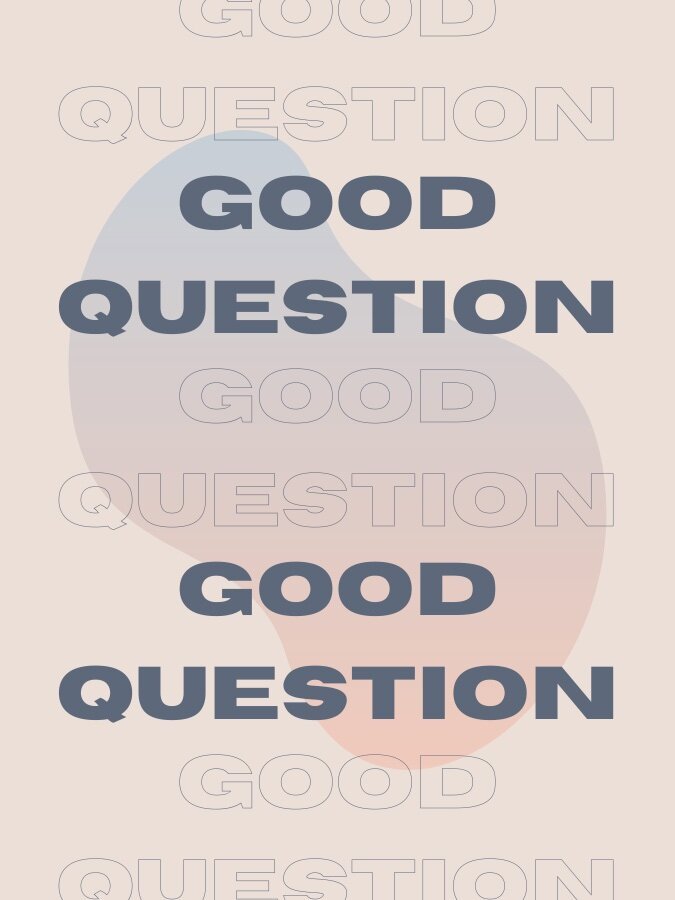
Is DIY sustainable if the ingredients come in plastic?
Welcome to our advice column where our editors offer thoughtful answers to your pressing inquiries. Head here to submit an anonymous question, and follow here for new Good Questions.✨
I’ve been trying some natural, “eco-friendly” recipes—like a DIY dishwasher detergent and natural fabric softener. On the description, it says that in making these things, they’re now package-free and eco-friendly. But for, say, the dishwasher detergent, the citric acid used in it came in a plastic container, and the tablespoons used to measure it were wrapped in plastic when they were shipped.
In making these different recipes, am I really being more “eco-friendly,” if the plastic containers are just in a different place? And the ingredients were shipped by Amazon—is that helping Earth? I’m worried I’m not being the eco-conscious person I want to be.
Kudos to you for taking an active step toward living more sustainably! I don’t have a DIY bone in my body—crafts are not my calling—but I try and do my planet-friendly part by upcycling, thrifting, and utilizing reusable goods. These daily choices can feel small, pointless even, when compared to the magnitude of our Earth’s environmental crisis, but taking charge of what’s truly in our control is progress.
“A government’s efforts to protect the environment rely on public support—which is where we can come in with our voting power.”
It’s important to remember that, when it comes to climate change and global warming, the greater responsibility belongs to those with greater power: the elected officials, investors, policymakers, and corporations who can enforce greater change. Environmental policies can protect our air, water, and land; our endangered wildlife, carbon-absorbing trees, and oxygen-producing oceans. When governments fail to enact effective policies, the threats persist.
Johnathan Williams, a Ph.D. candidate who studies modern American business, environmental, and political history, opines for the Washington Post that corporations would likely commit to improving their environmental practices if such regulations were enforced and polluters were held responsible. Still, a government’s efforts to protect the environment rely on public support—which is where we can come in with our voting power.
Eco-anxiety and guilt are real. If you’re ever feeling dissatisfied with your commitment to sustainability, remember to focus on progress over perfection. Zero-Waste Chef blogger Anne-Marie Bonneau once wrote, “We don’t need a handful of people doing zero waste perfectly. We need millions of people doing it imperfectly.” And “Overdressed” author Elizabeth Cline told VOGUE, “If you feel like you’re not allowed to participate in the conversation because of the way you shop, then we’re losing a lot of people that would otherwise be involved in fixing problems.”
“You are the eco-conscious person you want to be. You’re simply doing it at your own scale.”
So, first, be gentle with yourself: You are allowed in the conversation. Your efforts are worthy. You are the eco-conscious person you want to be. You’re simply doing it at your own scale.
It can be tough to maintain a low waste lifestyle when, societally, we’re already so dependent on the convenience of online shopping. Packaging is often unpredictable and entirely out of our control—though it never hurts to reach out to companies directly to express your concern over excess plastic.
If you’re looking to reduce the instances in which you have to receive deliveries altogether, look for brick-and-mortar shops around your neighborhood that specialize in bulk-buying and refills. Here in Los Angeles, we have a handful like Sustain LA and re_grocery (both of which also make their goods available online, even citric acid 😉).
Or, if you’d rather not DIY at all, consider buying from direct-to-consumer brands—like Cleancult, Blueland, or Public Goods—that make selling their own refills part of their business model; this way, you only have to buy the product vessel once and can replenish the contents at your will (some even have subscription options).
“Look for companies that make going plastic- and package-free a priority.”
Look for companies that make going plastic- and package-free a priority too, like the aptly named Package Free. And seek out companies that assist in the recycling of their own output, like clean beauty brand Ilia which not only takes back its emptied product containers, but also provides the prepaid return labels needed for shipping, too.
Finally, if you’re concerned about the eco-friendly ethics of Amazon, consider these alternative marketplaces. Many sell everything from cleaning supplies and pantry staples to nontoxic skincare products; shopping them will allow you to invest in small businesses and support independent artisans and makers.
There are lots of ways to live more sustainably (we have 99 of them right here!), so consider, first, if going DIY is the most satisfying means to that end for you—because we can also use less energy, travel more consciously, and shop less! Then, we can make it our mission to hold those in power accountable. We can vote for, donate to, or even become a leader who prioritizes the environment over profit, regardless of being on the local or national level.
“We can vote for, donate to, or even become a leader who prioritizes the environment over profit.”
Read more Good Questions here.
Have something on your mind? Click the button below 👇 ✨
RELATED READING
Danielle Cheesman was born and raised in New Jersey, where she lived until moving to Philadelphia to study journalism at Temple University. She has spent her years writing and developing editorial visions for music, art, and lifestyle brands. Now residing in Los Angeles, you can usually find her taking pictures, making playlists, or cuddling her pup. Say hi on Instagram!
